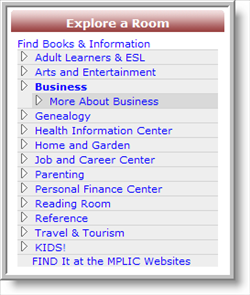ANSWER: What Would You Do? (Broken A: Drive)
OK, I got two answers regarding the last What Would You Do?. Both of these answers are different from what I did, but they both would have worked (sort of). Nonetheless, Mary from Children's and Laura from Bartlett are winners of booklights, which they will be receiving shortly.
Basically, our dilemma involved moving a document from one computer to another without the capability to save the file to anything (something that is necessary to send an attachment or upload to a website).
Mary suggested just copying and pasting the document into an email text box (rather than worrying about attachments). The customer could then send the message to themselves and open the document on another computer. Then they could copy and paste that into Word.
This does work, but doing so would probably strip the document of any special formatting features. However, it works. Mary gets a booklight.
And, yes Mary, having Flash Drives at all public service desks would be sweet.
Laura from Bartlett suggested just saving the document to the My Documents folder on the computer. You would not even need to move the file to another computer because then, the customer would have been able to upload the document.
Well, this does work if you are on a computer that happens to allow you to save to the My Documents folder. Also, as Laura points out, finding the My Documents folder can be quite a task. That is why I have pretty much ruled out the possibility of using the My Documents folder. However, if you know how to do it and it works, then awesome. Laura gets a booklight. Laura also suggested the Mary-technique of copying and pasting into an email message.
What I did in this situation now seems like technology overkill, but I was able to move the customer's document from one computer to another without losing any special formatting.
First, we created a Google Docs and Spreadsheets account. If a customer has an existing email, this takes about 2 minutes. We then pasted the Word document into Google Docs. Then we accessed the customers new Google Docs account from another computer. Then, Google Docs has the option to Save as a Word document (again, we do not lose any special formatting). We were then able to upload the document. We did it in a flash.
Of course, this was a fairly savvy teen who was able to go through this process easily. I may not take all customers on this journey. Of course, what is easier, pushing a customer through Google Docs or having them re-format their document?
This brings up another idea, but I'll save it for the next blog post. This one is too long as it is.




